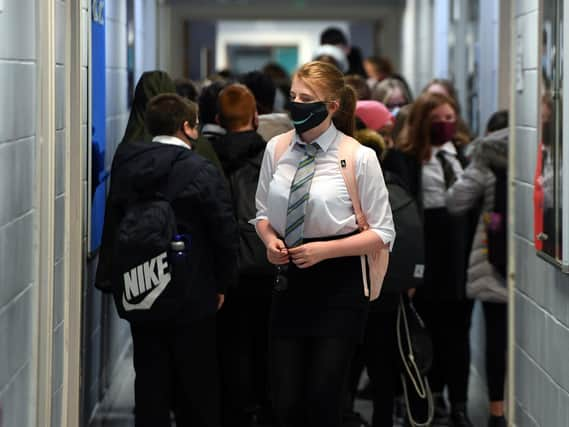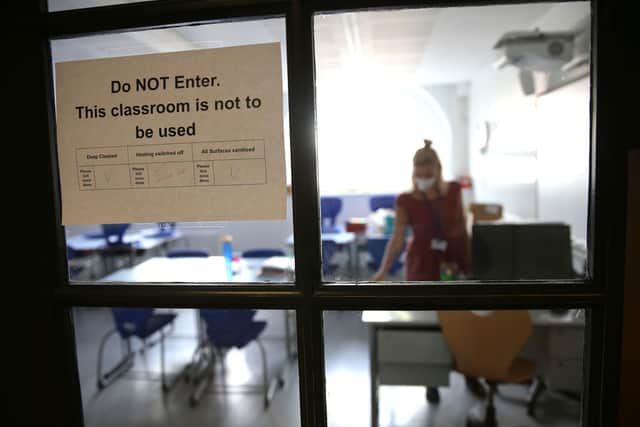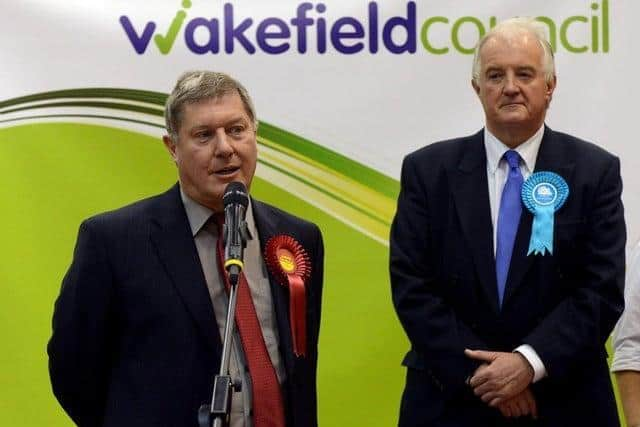School exclusion rates in Wakefield to be monitored after pupils elsewhere told to avoid deliberately coughing


Earlier this week it was widely reported that pupils at a Sussex school were told they'd be sent home if they maliciously "coughed or sneezed" or made jokes about coronavirus.
Pontefract Labour councillor and former head teacher David Jones told a public meeting he was aware of a handful of coughing incidents at local schools before the summer break, when the children of key workers were still in the classroom.
Advertisement
Hide AdAdvertisement
Hide AdThe number of pupils being temporarily excluded and permanently expelled has risen sharply in Wakefield in recent years.


Education officials at Wakefield Council have publicly discouraged head teachers from expelling children frequently, given many of them end up being home schooled where the state has little oversight and few powers to help.
Although no pupils in Wakefield have been turfed off a school's books since the pandemic started, there is concern exclusions could rise again as students return to the classroom in full.
Coun Jones, the chair of the local children and young people scrutiny committee, said: "We've all been aware over the last few days about the tightening of discipline with regard to children coughing.
Advertisement
Hide AdAdvertisement
Hide Ad"I'm aware of some of those incidents in schools last term where children coughed on purpose.


"In view of that, given the extraordinary times we're going through, can we be sure that the monitoring of exclusions will still be taking place, so we don't suddenly find we get a significant spike?
"Children have got used to a different way of life, and it will take time to adapt, so it's a concern.
"I know there's a bit of a time lag between exclusions taking place and being recorded.
Advertisement
Hide AdAdvertisement
Hide Ad"But can that (scrutiny) be increased so we don't suddenly find large numbers of children wandering around?"
In response, Stephen Crofts, from the council's children's services department, said: "That's a very good point.
"We do need to be keeping a close eye on things, particularly in the early days of children returning to school.
"We'll make sure we're keeping a really close eye on what you might consider Covid-related changes to discipline and the impact of that on fixed term and permanent exclusions."
Advertisement
Hide AdAdvertisement
Hide AdThe meeting was also told that 11,000 children had remained in school in Wakefield between April and July, either because their parents were key workers or because they were classed as "vulnerable" pupils by the government.
The number represents more than a fifth of the total number of schoolkids in the district.
School leaders were praised for their efforts in continuing teaching during the spring and for their handling of the exams fiasco last month.
A government U-turn over the way GCSE and A-Level students were graded caused chaos and confusion across the country, with a now infamous algorithm having downgraded thousands of teachers' predictions.
Advertisement
Hide AdAdvertisement
Hide AdSally Kincaid, from the Wakefield branch of the National Education Union, said the the government's handling of the saga had been an "unmitigated disaster".
She added: "My heart goes out to all the youngsters, including my own, who had to go through all that stress. Their parents and teachers as well.
"I know what actually happened was that some teachers were asked to rank their students in a particular order. As an ex-teacher I'd have found that really difficult, and I know some of my friends really struggled with it.
"It was a mess.
"We need to think about nurturing our young people now, given they've had to go through a horrible six months."
Advertisement
Hide AdAdvertisement
Hide AdAndy Lancashire, the council's director for service for education and inclusion, said it was a "surprise" that no-one in government had seen the problem with the original grading system coming.
Local Democracy Reporting Service
Comment Guidelines
National World encourages reader discussion on our stories. User feedback, insights and back-and-forth exchanges add a rich layer of context to reporting. Please review our Community Guidelines before commenting.